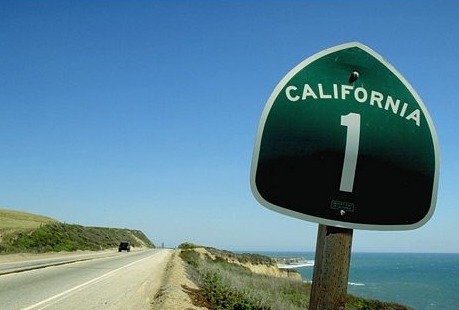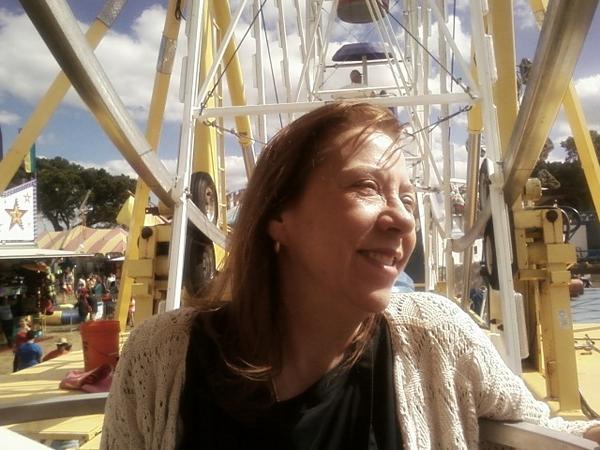“Whatever the old girl says, do—do it!”
Charles Dickens, Bleak House
Terry Teachout on the arts in New York City
“Whatever the old girl says, do—do it!”
Charles Dickens, Bleak House
* * *

Lydia R. Diamond’s “Smart People,” a hard-edged satire of life among the academic multiculturati, was first performed off Broadway in 2016 in a production directed by Kenny Leon. I praised the play at the time as “intelligent and provocative enough to put you in mind of Tom Stoppard,” and I wasn’t even slightly surprised to see it taken up in short order by regional theaters. A four-character play with minimal scenic requirements, it also lends itself to small-scale bare-bones production, which makes it ideally suited to webcasting. Accordingly, Wisconsin’s American Players Theatre, America’s finest classical theater festival, has now put “Smart People” online as part of the company’s “Out of the Woods” series of Zoom-based play readings….
Directed by Melisa Pereyra, this webcast, like its predecessors in the “Out of the Woods” series, is an unstaged Zoom reading. It is well acted, crisply paced and sufficiently convincing in its own right to confirm my initially favorable impression of “Smart People,” and if you’ve never seen the play, I recommend it to you….
* * *
Read the whole thing here.An excerpt from Writers Theatre’s staging of Smart People:

A scene from NBC’s 1960 telecast of the musical version of Peter Pan, starring Mary Martin and adapted and directed for the stage by Jerome Robbins. The song is by Carolyn Leigh and Moose Charlap:
(This is the latest in a series of arts- and history-related videos that appear in this space each Monday, Wednesday, and Friday)
“To die will be an awfully big adventure.”
James M. Barrie, Peter Pan
Not long after Hilary died, an old friend of mine who is also a psychiatrist said something that stayed with me: “You should try to reach a point where you can see your marriage to her as a blessing.” My Jewish friends have a different way of putting it: May her life be as a blessing. But it was difficult for me to feel that way in the first few months that followed Hilary’s cruelly untimely death, fixated as I was on the sheer wrongness of it. To die a month after receiving the double lung transplant for which we’d spent seven long years waiting—how could that make any kind of sense?
Would that I had found solace in the comforts of faith. Alas, I was unable to drive these terrible lines from King Lear out of my tortured mind:
As flies to wanton boys are we to th’ gods.
They kill us for their sport.

Only in the past month or so have I started to find it possible—on occasion—to remember with joy the good times that Hilary and I shared during the fifteen years of our marriage. Knowing that her life would inevitably be cut short, I resolved early on to fill what remained of it with what we called “adventures,” most of which I chronicled on this blog. We traveled from coast to coast seeing shows for The Wall Street Journal. We drove up Highway 1 from San Diego to San Francisco one summer, and made the same trip in reverse two years later. We spent a long weekend cruising on a windjammer and eating fresh lobster, the food she liked best, so much so that I made sure it was on the menu of every restaurant where we dined on our annual trips to Maine. We stayed in three different Frank Lloyd Wright houses and went to two county fairs (I rented a wheelchair for the day and pushed her from ride to ride). I wrote an opera libretto and a one-man play about Louis Armstrong, and Hilary was in the audience for the opening nights of both shows, as well as the night when I made my debut as a professional stage director. And—best of all—we spent the better part of six winters on Florida’s Sanibel Island, our favorite place in the world.

Hilary was the ideal traveling companion, throwing herself into our shared adventures with contagious gusto. Though she didn’t much care for the novels of Henry James, I think she would have liked these lines from The Ambassadors: “Live all you can: it’s a mistake not to. It doesn’t matter what you do in particular, so long as you have had your life. If you haven’t had that, what have you had?” Knowing that she was destined to die before her time, she lived all she could, and I delighted in dreaming up new ways for her to do so. To see her wonderful smile—it lit up her whole face whenever she was happy—never failed to make my efforts worthwhile.
This is the first Thanksgiving since Hilary’s death, and I’m trying to be thankful for what we had, and grateful that I (usually) knew how happy our life together was while we were living it. The two of us saw Our Town together four times, in Petersborough, Hartford, New York, and Boston, and though we never talked specifically about the question that Emily asks the Stage Manager at play’s end, I feel certain that Hilary was at all times intensely aware of its immediate relevance to her condition: “Oh, earth, you’re too wonderful for anybody to realize you. Do any human beings realize life while they live it…every, every minute?” Hilary did, and because she did, so did I.
Even now, such gratitude doesn’t come easily to me—I’m still bruised by what I went through in the last couple of years of Hilary’s life, when her health started spiraling inexorably downward—but I hope that the adventures we shared will someday be the first thing I think of when I think of her. That will be a blessing.
* * *
A scene from the 2002 Broadway revival of Thornton Wilder’s Our Town, with Maggie Lacey as Emily and Paul Newman as the Stage Manager:
“VLADIMIR: Astride of a grave and a difficult birth. Down in the hole, lingeringly, the grave digger puts on the forceps. We have time to grow old. The air is full of our cries. (He listens.) But habit is a great deadener. (He looks again at Estragon.) At me too someone is looking, of me too someone is saying, He is sleeping, he knows nothing, let him sleep on.”
Samuel Beckett, Waiting for Godot

Margot Fonteyn and Rudolf Nureyev dance the death scene from Kenneth MacMillan’s ballet version of Romeo and Juliet. The score is by Prokofiev:
(This is the latest in a series of arts- and history-related videos that appear in this space each Monday, Wednesday, and Friday)
“There is an art in taking the whiplash of suffering full in the face, an art you must learn. Let each single attack exhaust itself; pain always makes single attacks, so that its bite may be more intense, more concentrated. And you, while its fangs are implanted and injecting their venom at one spot, do not forget to offer it another place where it can bite you, and so relieve the pain of the first.”
Cesare Pavese, This Business of Living
| M | T | W | T | F | S | S |
|---|---|---|---|---|---|---|
| 1 | 2 | 3 | 4 | 5 | 6 | |
| 7 | 8 | 9 | 10 | 11 | 12 | 13 |
| 14 | 15 | 16 | 17 | 18 | 19 | 20 |
| 21 | 22 | 23 | 24 | 25 | 26 | 27 |
| 28 | 29 | 30 | ||||
An ArtsJournal Blog